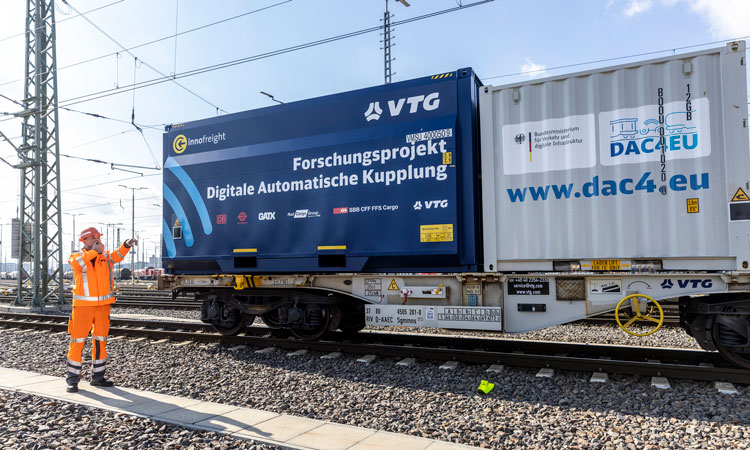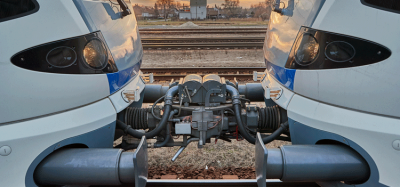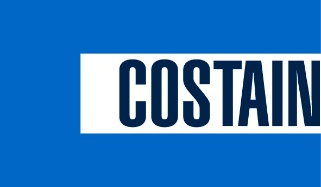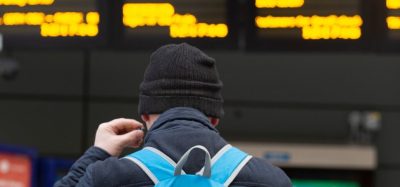Digital freight train equipped with DAC completes test run
Posted: 3 May 2023 | Global Railway Review | No comments yet
The aim of the test train’s journey was to check the functionality of Digital Automatic Coupling (DAC) in different situations and conditions and to identify possible weak points to improve on.


Credit: Deutsche Bahn AG / Pablo Castagnola
The introduction of Digital Automatic Coupling (DAC) for freight trains is gaining momentum.
The first practical test of the digital freight train equipped with DAC, which lasted several months, has been successfully completed.
The test train was equipped with various prototypes of DAC which travelled on freight lines and marshalling yards throughout Europe to check its functionality in different scenarios, situations and conditions, and to identify possible weak points.
With the completion of the test train’s journey, DAC has proven its practicality and now the manufacturers of the new coupling are entering the next development phase; the aim of which is to make the new standard for freight trains ready for series production in Europe over the next few months.
To this end, Germany’s Federal Ministry of Digital Affairs and Transport (BMDV) is providing an additional €7 million for a further test phase.
DAC is the backbone for the digitalisation of freight trains
At DB Cargo alone, up to 70,000 coupling operations per day have to be carried out by hand throughout Europe in order to form trains. With DAC, trainsets can be connected digitally in fractions of a second, including brake and digital control lines. This is the first time that freight wagons are equipped with continuous power and data lines.
All shunting and operating runs in freight transport can thus be automated and run faster. That is why the Europe-wide introduction of DAC is the decisive lever to make rail more competitive with road and to achieve the European climate targets. Therefore, financing is a pan-European challenge; the design of which is still under discussion.
Parliamentary State Secretary Michael Theurer, Federal Government Commissioner for Rail Transport, said: “I am very pleased that the DAC is proving its worth in everyday life and that we can help this ground-breaking technology achieve a breakthrough with the continuation of European test operations. However, this presupposes that not only the technical but also the financial conditions are created. The Federal Government will therefore promote the DAC to all European partners, as it did today in Brussels. Because one thing is clear: how flexibly rail can react to the requirements of freight transport is directly related to how quickly we get the digital freight train on the rails.”
Dr. Daniela Gerd tom Markotten, DB Board Member for Digitalisation and Technology, said: “The sooner the DAC is ready for series production, the faster the revolution in freight transport can take place. The digitalisation of the freight train makes it possible for more trains to travel by rail overall – this benefits all our customers. Together with the partners, DB’s engineers are accompanying the tests and making the coupling fit for everyday rail use.”
Dr. Sigrid Nikutta, DB Board Member for Freight Transport, said: “More goods on the railways – automation and digitalisation are absolutely necessary for this. Only with more goods by rail can we achieve the climate goals of Germany and the EU! The DAC is an investment for the future of our planet. Throughout Europe, DAC has proven itself in the tough day-to-day operations – technically, we can start with the conversion.”
Over the past more than one and a half years, the test train has covered a total of 10,000km across seven European countries. The train entered 25 different marshalling yards and operation was tested in the lowlands, in the Alps and under extreme weather conditions from -25 to +40 degrees.
Extension of the DAC project
The funding for the extension of the DAC project makes it possible for the test train, consisting of 18 cars and 40 DAC prototypes, to be on the road in more European countries. These test drives will provide new test results that will enable the various manufacturers of the clutches to complete their ongoing development work and present solutions ready for series production.
In addition to DB and its subsidiary DB Cargo, the DAC4EU consortium carrying out the project includes five other companies: the Swiss and Austrian freight railways SBB Cargo and Rail Cargo Austria, as well as the wagon keepers Ermewa, GATX Rail Europe and VTG.
Related content you will enjoy:
Roundtable: Improving Rail Freight’s Modal Share
Related organisations
Related regions
Related people
Daniela Gerd tom Markotten, Dr Sigrid Nikutta, Michael Theurer








